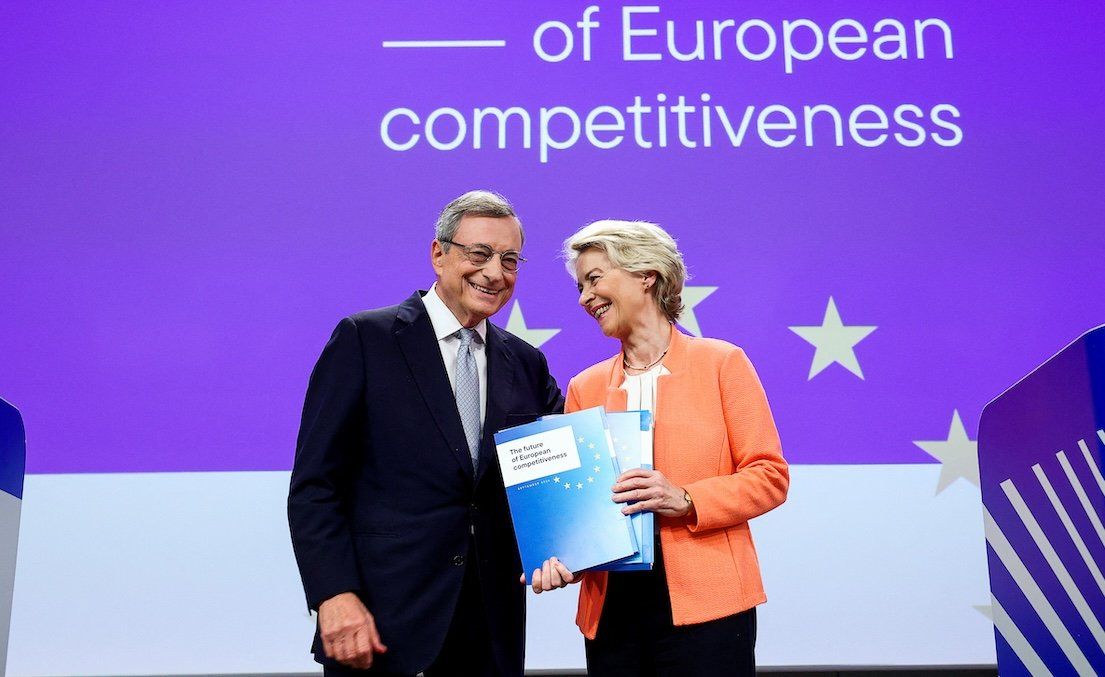How can Europe compete in a world where the US and China, the globe’s two 800-pound gorillas, are increasingly at odds? By spending
€800 billion a year to level up, says former Italian PM and European Central Bank chief
Mario Draghi. On Monday, he published a report urging the EU to take urgent action to boost the competitiveness and security of Europe’s industries or risk falling behind the US and China for good. It’s ambitious, but Draghi is a man known for staring down the seemingly impossible (say: stabilizing Greece’s finances or Italy’s politics).
The central problem, Draghi says in his report, is that the EU lacks a “foreign economic policy” that aligns the continent’s trade agenda with geopolitical realities. The report highlights Europe’s dependence on China for critical minerals and warns that some 40% of European imports are vulnerable to geopolitics-related supply interruptions. Europe’s trade openness, arguably one of its greatest economic assets, also leaves it vulnerable to unfair Chinese practices, such as subsidizing producers who can then undercut European ones.
Meanwhile, across the pond: The US House of Representatives, back from summer recess, has taken up a
series of bills aiming to protect US intellectual property from China, ban Chinese EVs and drones, and reduce reliance on Beijing’s biotechnology companies.
